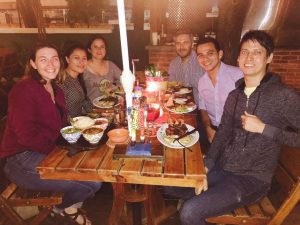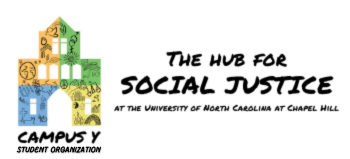The following blog was written by Meagan Meekins, a Global Engagement Fellow currently working in Guatemala.
Being in the Peace Corps taught me that you can never prepare for life abroad. You will learn more than you thought. You will stretch yourself farther than you thought. You will find ways to listen and share, but nothing will go exactly as planned.
Right after I bought my tickets for Guatemala to work on a project related to a community organized PrEP clinic I got a call from my advisor, the funding had fallen through. But, she assured me, there was still plenty to do. Another project that was underway with the same community organization, and others, and the opportunity to support the partner in other ways. I flashed back for moment to my Peace Corps training, what I had also trained so many other Peace Corps volunteers to remember, that things “nunca se van como piensen, pero siempre se van”. I smiled and agreed to go anyway, ready for the new things to be learned and with the extra push to be flexible.
I’m about a month into my internship now and things are going well. I work jointly with an amazing community organization, El Colectivo de Amigos contra el SIDA (CAS) and a local university, La Universidad del Valle de Guatemala (UVG). The study I’m supporting aims to decentralize medical support for HIV positive patients, specifically those who have historically been disenfranchised, men who have sex with men (or MSM, in the HIV world). The hospital where these patients are treated, Hospital Roosevelt, is open from 7-3, and that is a difficult time for many to come as they are out working or have to leave home in the wee hours of the morning. And many times they stay for hours, until 10 or noon. Appointments are given by the day and are first come first serve. The first in line gets the first appointment. It leads to very long days.
 So, we are hoping to support local clinics, that already do HIV and STI testing, do check-ups and medication dispersal for these MSM HIV patients as well. They have different hours, afternoon and night hours, weekend hours, and are located in different parts of the city. I have been learning about the qualitative part of the study, which is exciting for me because it allows me to gain skills and share knowledge about one of my favorite parts of my MPH training so far. I have been able to do a few interviews, and share with both our team here at UVG and CAS about data collection, interview guide development, and a little about analysis. Out of about 400 participants the study is following 30 men over the course of the year and interviewing them 3 times: once at the beginning of the study, which I have been helping with, once 6 months after they enroll, which will begin soon after I leave in July, and then 12 months after enrollment, at the end of the study. I think the possibilities of knowing the in depth experience of these 30 patients will add so much to the quantitative data of the study. And I’ve been so excited to work together with my team at UVG and CAS to help us all improve our qualitative data skills.
So, we are hoping to support local clinics, that already do HIV and STI testing, do check-ups and medication dispersal for these MSM HIV patients as well. They have different hours, afternoon and night hours, weekend hours, and are located in different parts of the city. I have been learning about the qualitative part of the study, which is exciting for me because it allows me to gain skills and share knowledge about one of my favorite parts of my MPH training so far. I have been able to do a few interviews, and share with both our team here at UVG and CAS about data collection, interview guide development, and a little about analysis. Out of about 400 participants the study is following 30 men over the course of the year and interviewing them 3 times: once at the beginning of the study, which I have been helping with, once 6 months after they enroll, which will begin soon after I leave in July, and then 12 months after enrollment, at the end of the study. I think the possibilities of knowing the in depth experience of these 30 patients will add so much to the quantitative data of the study. And I’ve been so excited to work together with my team at UVG and CAS to help us all improve our qualitative data skills.
Qué más puedo decir? So far, so good! Over the next few weeks we will be nailing down the mid-line interview guides, doing some mock interviews to practice, and I’ll also get to do 1-2 more base line interviews to increase my skills. I’ll be continuing to work on the study with my advisor throughout the year, and using the baseline qualitative data in one of my classes this fall to analyze and write a manuscript I hope will be published! Being down here and seeing the day to day, developing relationships with the team, all this has been invaluable and I know I still will learn so much over the next year. Check in again in a few weeks to see how I’m feeling at the end, when I’ve made it back stateside!
